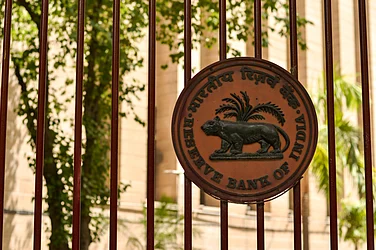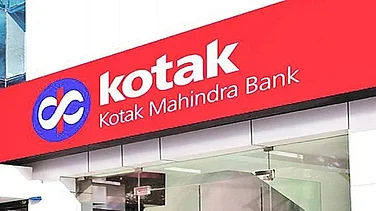A week after announcing slew of measures to give a boost to the sagging consumer and investor confidence, Finance minister Nirmala Sitharaman yet again announced the merger of ten public sector banks (PSB) to create four large entities.
Punjab National Bank was merged with Oriental Bank of Commerce (OBC) and United Bank. The other mergers was between Canara Bank and Syndicate Bank; Union Bank was merged with Andhra Bank and Corporation Bank to build India’s fifth-largest PSB while Allahabad Bank was merged with Indian Bank.
With this move, the Government has expedited its long-standing aim of consolidation of state-owned banks- with 12 banks post consolidation from 18 currently (ex-IDBI)- eight out of, which will be large banks with national presence, while four banks will have regional focus. A key consideration for the merger has been technological inoperability within the merged banks.
Various experts from the BFSI space have reacted on this move. While most of them have welcomed the move, some said, there is a long way to go and some said the move has created uncertainty for the minority shareholders of these PSBs.
Rajnish Kumar, Chairman, SBI, said, “The announcements on bank mergers is a cohesive and a clear recognition that bigger banks have that much more ability to absorb shocks, reap economies of scale as well as the capacity to raise resources without depending unduly on the exchequer. It also underlines the fact that the government recognises the importance of a robust banking system in achieving the goal of $ 5 trillion economy as bigger banks will be better armed to meet the credit needs of a fast growing economy like ours”.
The decision to have separate mechanism for sanctioning and monitoring of big loans will ring-fence the banks against potential frauds, Kumar said.
Prakash Agarwal, Head- Financial Institution, India Ratings and Research (Fitch Group) said, “Bank consolidation is a good move from government in step towards improving efficiency of the PSBs. Specifically the measures announced to improve corporate governance and grooming leadership, if followed through with right intent, resources and commitment, can go a long way in addressing the challenges that PSBs has been facing historically.”
Agarwal further said that, it is possible that the current mergers may face more friction than the last one with Bank of Baroda, Dena Bank and Vijaya Bank. In that case, a large, well-capitalised, strong bank absorbed much smaller two entities. In the present case, the mergers are mostly among larger banks, with absorbing bank not necessarily in strong health. However, given the merged banks are on similar technology platform, the integration should be smoother. Also it is likely that management attention and bandwidth of the entities being merged could get split impacting the loan growth and reduce focus on strengthening asset quality in the short term.
Rajiv Mehta, Executive Vice President, YES Securities said, “A thoughtful consolidation of PSBs is a step in the right direction as it leads to augmentation of operational capacity of the merged banks through enhanced scale, capital and efficiencies. Operating redundancies can be eliminated and cost productivity can be improved over time. A bulk of the budgeted Rs70,000 crore capital allocation now goes to the merged banks to help them grow while discovering synergies. Various governance reforms announced are welcome too and will improve risk oversight. Key would be to not have an extended non-performing loan (NPL) cycle, driven by continuing corporate stress and impairments in SME and retail loans. Also, the steps taken do create an uncertainty for minority shareholders of the involved banks, he warned.
Ravindra Sudhalkar, ED and CEO, Reliance Home Finance said, "The government has put forward a very bold consolidation plan for the PSBs. A proper evaluation of the consolidation that has been announced points towards the will of the government in strengthening the public banking system by combining banks based on their strengths and operational metrics. One can expect a rationalisation of the banking resources especially considering that a thought has been given to all factors including the geographical spread of the bank bought together. The FM has also taken due care of the regional banks, ensuring an adequate and rational distribution of resources earmarked in recapitalisation. The plan of disbursing Rs 70,000 crore among the entities based on the business requirements of each of the banks in order to propel growth will help in kick-starting a new cycle of investment and improve the overall banking sector. Governance improvement measures are another positive which are likely to help in creating a technology driven, highly credible and profitability focused banking system. The measures will ensure a complete overhauling of the banking system right from the branch level upwards."
Anusha Raheja, BFSI Research Analyst at LKP Securities said, “Govt’s path-breaking announcement of mega merger of PSBs making them larger and bigger would change Indian banking landscape for better. While the merger is yet to be approved by their respective boards and the RBI, the large balance sheets will allow the new entities to price loans competitively. Various other governance reforms announced with respect to strengthening PSBs boards will address their key legacy issues and bring them on par with private peers. Upfront capital infusion in banks for growth is also positive".
Mona Khetan, Banking Analyst, Reliance Securities said, *The consolidation will aid economies of scale for these banks, resulting in improved cost of funds and operating efficiency. A big positive from today’s FM address was the recruitment of CRO from market at market linked compensation for PSBs, which could improve the underwriting standards at these banks, a long time concern”.
However Khetan said, “Nonetheless, merger related issues including HR/IT related synchronisation, branch rationalisation, and realigning of NPAs could impact interim profitability. On valuations, given their weak return on assets and interim profitability pressure, we do not expect a significant catch up unless one sees a sharp improvement in risk practices.































